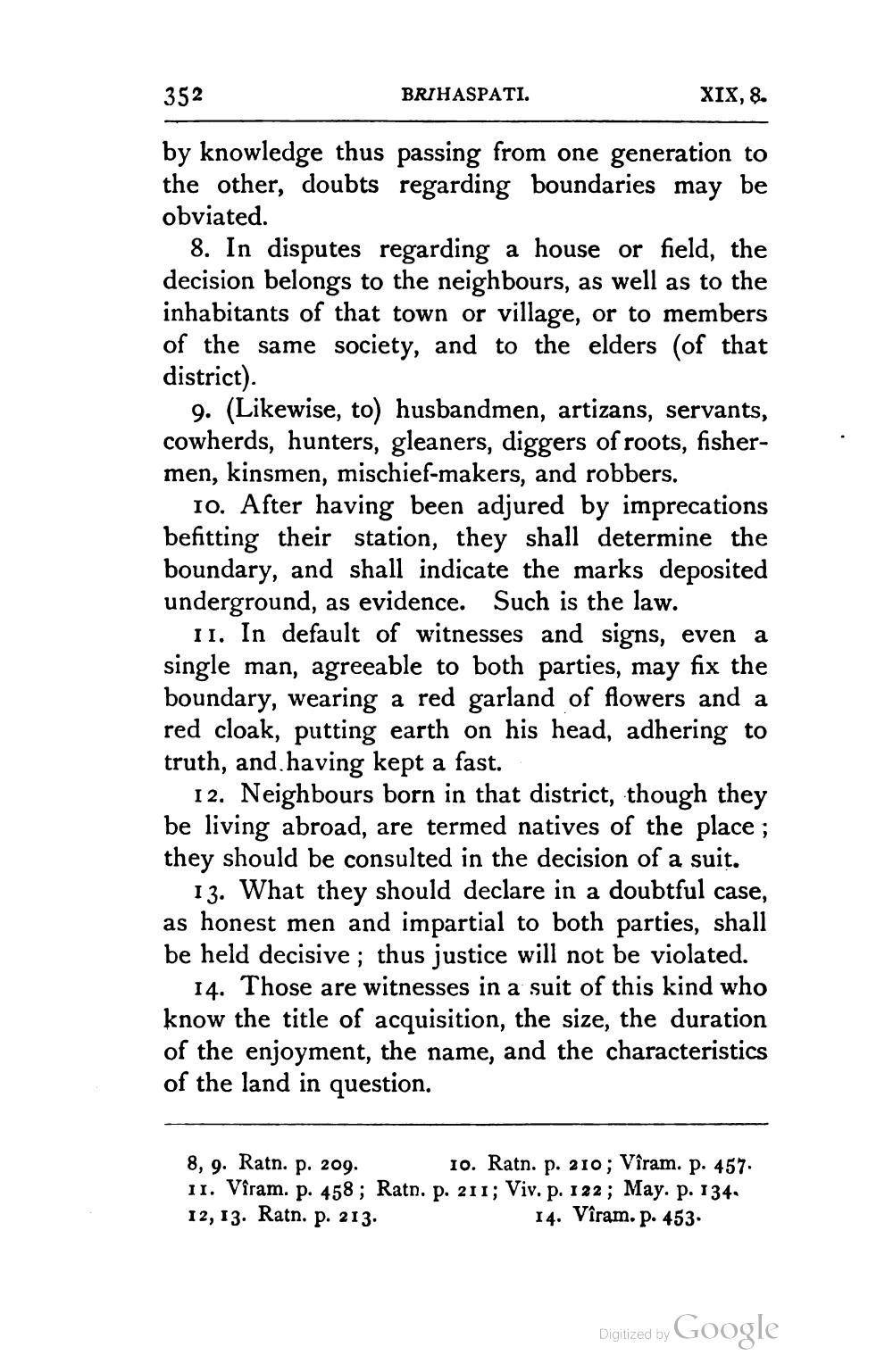________________
352
BRIHASPATI.
XIX, 8.
by knowledge thus passing from one generation to the other, doubts regarding boundaries may be obviated.
8. In disputes regarding a house or field, the decision belongs to the neighbours, as well as to the inhabitants of that town or village, or to members of the same society, and to the elders (of that district).
9. (Likewise, to) husbandmen, artizans, servants, cowherds, hunters, gleaners, diggers of roots, fishermen, kinsmen, mischief-makers, and robbers.
10. After having been adjured by imprecations befitting their station, they shall determine the boundary, and shall indicate the marks deposited underground, as evidence. Such is the law.
11. In default of witnesses and signs, even a single man, agreeable to both parties, may fix the boundary, wearing a red garland of flowers and a red cloak, putting earth on his head, adhering to truth, and having kept a fast.
12. Neighbours born in that district, though they be living abroad, are termed natives of the place ; they should be consulted in the decision of a suit.
13. What they should declare in a doubtful case, as honest men and impartial to both parties, shall be held decisive ; thus justice will not be violated.
14. Those are witnesses in a suit of this kind who know the title of acquisition, the size, the duration of the enjoyment, the name, and the characteristics of the land in question.
8, 9. Ratn. p. 209. 10. Ratn. p. 210; Vîram. p. 457. II. Vîram. p. 458; Ratn. p. 211; Viv. p. 122; May. p. 13412, 13. Ratn. p. 213.
14. Vîram. p. 453.
Digitized by Google




